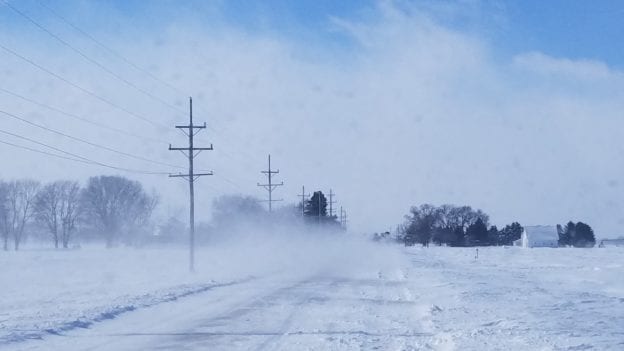The post Texas PUC Chair Resigns as Outage Probe Continues appeared first on POWER Magazine.

The chairwoman of the Public Utility Commission (PUC) of Texas has resigned, stepping down after the state’s lieutenant governor earlier on March 1 called for her resignation, along with that of the CEO of the state’s power grid operator.
DeAnn Walker, the PUC chair, in her resignation letter Monday to Gov. Greg Abbott, defended her actions and leveled criticisms at others as state lawmakers and energy officials continued to spar over who is to blame for widespread power outages in mid-February that left millions of electricity customers in the dark for days, many without both heat and water.

The PUC regulates the state’s electric, telecommunications, and water and sewer utilities. Walker, whose commission is appointed by Abbott, testified before state lawmakers last week, along with Electric Reliability Council of Texas (ERCOT) CEO Bill Magness, as the legislature held hearings to address why the state’s power grid could not cope with cold temperatures that brought several days of power outages.
“Effective immediately, I resign as the Chairman of the Public Utility Commission of Texas. I believe it is in the best interest of this Great State of Texas,” Walker wrote in her Monday letter.
Texas Lt. Gov. Dan Patrick on Monday suggested that both Walker and ERCOT CEO Bill Magness lied to lawmakers last week, saying, “Both the Chairman and CEO publicly testified they had informed state leadership, including me, about the seriousness of the winter storm. In fact, as they both admitted to me the day after the hearings, their testimony was not accurate.” He called for both of them to resign.
At Least 40 Deaths
The lack of electricity and the extreme cold has been cited as contributing to at least 40 deaths in Texas during the storm. The PUC oversees ERCOT, the nonprofit group that manages and operates the power grid across much of the state.
ERCOT said the power outages it initiated across its grid—blackouts that lasted for more than 70 hours in subfreezing temperatures, readings that were often in the single digits— were necessary to avert an even more catastrophic failure that would have wiped out power to most of the state’s 30 million residents for weeks or perhaps months.
Seven ERCOT board members have resigned in the past week—five announced on Feb. 23 they were leaving—including an official with Brazos Electric Power Cooperative, the state’s oldest and largest electricity co-op. Brazos Electric on Monday filed for Chapter 11 bankruptcy protection, saying it cannot pay a $ 2.1 billion bill it received from ERCOT for charges related to electricity costs due to the winter storm.
Abbott last week said of the initial board resignations: “ERCOT failed to do its job and Texans were left shivering in their homes without power. ERCOT leadership made assurances that Texas’ power infrastructure was prepared for the winter storm, but those assurances proved to be devastatingly false. The lack of preparedness and transparency at ERCOT is unacceptable, and I welcome these resignations.” Abbott has called on state lawmakers to make reform of the grid operator’s business an “emergency” item in the current legislative session.
Walker Appointed in 2017
Walker was appointed by Abbott in 2017 to lead the PUC. Her term was set to expire in September of this year. She had previously been a policy advisor to Abbott on regulated industries. Prior to that, she worked for Houston-based CenterPoint Energy, serving as the utility’s associate general counsel and director of regulatory affairs.
Lawmakers on Feb. 25 began calls for members of the PUC to resign after hearing testimony from Walker, who took little responsibility for the crisis during legislative committee meetings on the power outages. Lawmakers questioned why Walker did not do more to prevent the crisis, asking about how much information she had on whether the state’s power system could withstand winter storms. They also asked why the chairwoman did not raise concerns about the possibility of power outages that could occur on a system that for years has been criticized for its lack of winterization.
Walker in last week’s testimony mostly said ERCOT and Magness were to blame. She told lawmakers, “You know, there’s a lot of things Bill said about our authority over them that I simply disagree that that’s how it’s actually playing out in real life.”
Lawmakers said Walker should accept more responsibility as she leads the regulatory agency that oversees the state’s power sector. State Sen. John Whitmire, a Democrat from Houston, said, “When you say you don’t have authority … I’ve got you down as a pretty powerful person.”
Question About Legal Authority
Walker in her testimony said the PUC did not have the “legal authority by the legislature to require winter weatherization,” and also said “it costs a lot of money.” The lack of upgrading equipment to withstand extreme temperatures has been cited as a primary cause of why the power supply could not keep up with a massive increase in demand caused by the winter storm. Most power generation in Texas is not built to withstand severe cold, in part because sub-freezing temperatures of the duration that happened in February have been a rare occurrence.
The state’s deregulated power market structure has been cited as a reason power generators in Texas have not upgraded equipment, as well as the state’s electricity transmission and distribution system.
Walker in her resignation letter to the governor said she was leaving because she thinks it is in the best interest of the state, noting “I testified last Thursday in the Senate and House and accepted my role in the situation.” She called on other groups, including the Railroad Commission (the state agency overseeing Texas’ oil and gas industry), ERCOT, lawmakers, gas companies, electric generators and others in the industry to “come forward” and talk about how their actions contributed to the power crisis.
Walker wrote that all those groups “had responsibility to foresee what could have happened and failed to take the necessary steps for the past 10 years to address issues that each of them could have addressed.” She was referencing a 2011 cold snap that at the time brought calls for Texas to improve its power grid and electricity production equipment to withstand severe cold.
Renae Eze, a spokesperson for Abbott, in a statement said the governor accepted Walker’s resignation and thanked her for her service. “Our focus is to continue working collaboratively with the legislature on reforms to our power system and look forward to passing lasting and meaningful solutions to ensure these tragic events are never repeated,” Eze said in a statement.
—Darrell Proctor is associate editor for POWER (@POWERmagazine).
The post Texas PUC Chair Resigns as Outage Probe Continues appeared first on POWER Magazine.